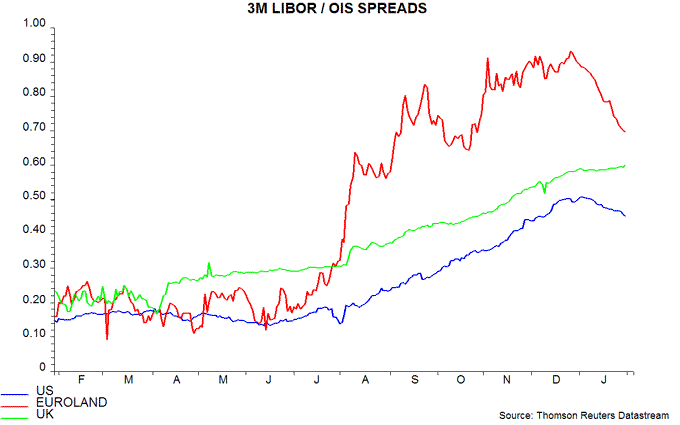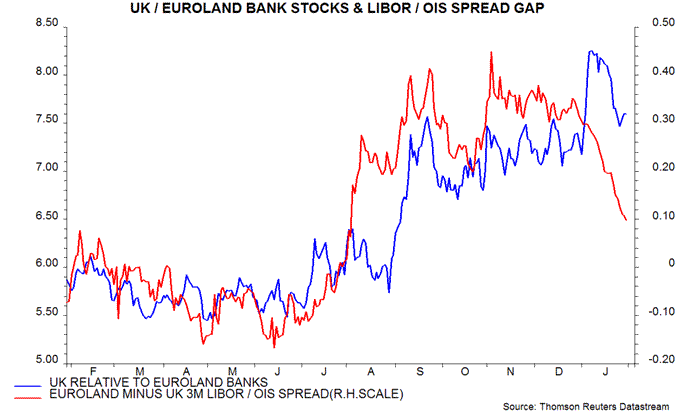UK monetary statistics: QE offset by bank retrenchment
UK money supply figures for December are a mixed bag but suggest that the economy will continue to struggle during the first half of 2012. The positive monetary impact of QE has been offset by bank disposals of non-domestic assets, probably in response to funding difficulties and regulatory pressure to boost capital ratios. Rather than force feed more cash into the gilt market, the Bank of England should offer ECB-style longer-term liquidity support to stem further deleveraging.
Bears are likely to alight on a 2.1% fall (not annualised) in the M4 broad money supply during the fourth quarter but this measure continues to be badly distorted by falling deposits of “intermediate” financial corporations – institutions channeling interbank business whose activities have little relevance to the “real” economy. The Bank’s preferred “M4ex” measure excluding these deposits declined by 0.2% last quarter.
This latter drop, moreover, was accounted by a fall in non-intermediate financial companies’ deposits, largely due to securities dealers – probably temporary. M4 holdings of households and private non-financial corporations rose by 0.7% during the fourth quarter, implying no generalised liquidity squeeze.
These numbers, however, are disappointing against the backdrop of an estimated £50.9 billion of gilt purchases by the Bank last quarter, equivalent to 3.3% of the M4ex measure. The counterparts analysis of M4 changes indicates that the positive monetary impact of QE was offset by banks’ efforts to contract their balance sheets, specifically by cutting their net external and foreign currency assets – by £28.2 billion over the quarter. Domestic assets, by contrast, were spared, with M4ex lending actually rising by £15.8 billion or 0.8%.
Monetary trends are probably not recessionary but faster expansion is necessary to revive economic growth. Further QE is unlikely to achieve this goal without accompanying action to enable banks to fund their balance sheets. The Bank insiders who control monetary and financial policy, however, refuse to contemplate ECB-style lender-of-last-resort operations – despite their hardline approach having resulted in a worse banking crisis in the UK than elsewhere in 2008-09.
The more hostile policy environment for banks in the UK than in Euroland has been reflected in a continued grind higher in the sterling three-month LIBOR / OIS spread even as the equivalent euro spread has fallen sharply – see first chart. This divergence has been reflected in UK bank stocks recently underperforming their Eurozone equivalents, following a large relative gain last year – second chart.



Reader Comments